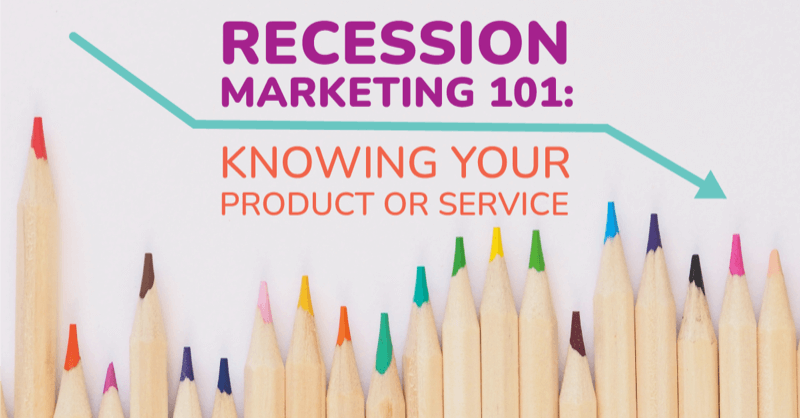Recession Marketing 101: Knowing Your Product or Service

In our recession marketing series so far, we’ve covered some of the biggest questions you may have about advertising when economic times are tough. First, should you be advertising at all? (Spoiler: yes!) And second, how do recessions affect consumer behavior, and what types of consumers emerge during a recession?
Knowing how a recession can affect the behavior of your customers is crucial, but it’s only one piece of the puzzle of recession marketing. In order to navigate rough economic waters, you also need to take some time to consider a much more basic question. What exactly are you offering to the world, and how does that affect your marketing when times are tough? Here’s what you need to know about looking at your product or service through the lens of a recession.
Not all purchases are created equal
No doubt you think what you’re offering to the world is awesome. It probably is! But when economic hardship makes people start pinching their pennies, they’re going to scrutinize their spending a little more closely. A purchase that may have seemed like a minor splurge in good times could be seen as an unreachable and unnecessary luxury in tough times.
It’s important to take a hard honest look at what you’re selling as you navigate recession marketing. After all, if you’re not honest with yourself about your product or service, how can you possibly market it? Knowing your product is crucial even in the best of times. But during a recession, it’s more important than ever. Here are four basic categories that most purchases fall into:

Essentials
These are items required for survival and daily functioning. Products in this category would include things like food, medication, personal hygiene items, etc. Essential services include things like plumbing, electric, repairs, and more. Realistically, their purchase can’t be put off for long, and most people need these at some point, whether there’s a recession happening or not.
Treats
While items in this category aren’t necessary to survive, they do make getting through a recession a lot more bearable. Treats could be anything from a salon trip to a gaming console, or smaller things like a piece of art or a book.
Luxuries
While there can be some overlap between this category and Treats, items in the luxury category are less likely to be bought during a recession. There’s a difference between treating yourself to a new lamp – a treat – and splurging on high-end marble countertops. Luxuries are expensive. While they may be considered a treat for some, the majority of people won’t purchase them.

Save-for-later
Let’s say you’ve been wanting a new deck. If your old deck is still functional, you’re probably not going to shell out for a new one until the economy recovers – however, you may still window shop. This category is for products and services that you want or need, but which can be postponed until later.
These categories might seem self-evident, but it’s worth thinking about how your type of product would be affected by a recession:
Essentials will likely stay consistent, though consumers might skimp a little on quality (e.g. going for the in-store brand as opposed to the name brand).
Treats will still be purchased, and with smart messaging, you can attract customers willing to splurge a little.
Luxuries will see their purchases numbers fall, and messaging should be handled carefully. Showing luxuries to the wrong audience will likely put them off and remind them of their financial woes.
Save-for-later purchases will also decline during a recession. However, this is a great opportunity to build up your brand recognition at potentially lower costs. Recessions are tough, but they don’t last forever!
Now that we’ve been over the types of consumers and types of products and services, it’s time to do some thinking and planning. Perhaps the best part of doing this kind of deep dive is that it will surface information that’s helpful even when there isn’t a recession!

Here are some recession marketing questions to get you started:
- Into which categories do my products or services fall?
- Could my product be considered an essential, or is it something that can be postponed?
- If my product is a luxury, what messaging could I use that won’t seem tone deaf?
- Is there an approach I could use that would connect with window shoppers, even if they may not purchase immediately?


